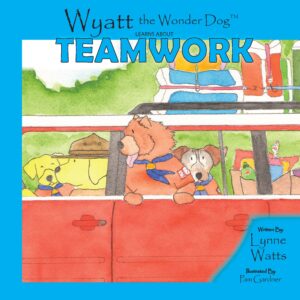Developing self-esteem in kids
Kids and Self Esteem
Back in my early counseling days we called it developing self-esteem in children. While developing self-esteem is certainly important, turns out we might have gone about it the wrong way.
We told kids that they were special… everyone is. We told them they were smart–geniuses really and so talented. We told kids they were doing a good job and set up the environment so that failure was unlikely. When failure and difficulties loomed on the horizon, we quickly intervened. We gave everyone a trophy and a ribbon, just for showing up. We retrieved forgotten homework and lunch boxes, making the necessary extra trips. Unfortunately, we created such a rosy effortless world that kids grew up expecting life to be easy and problem free. Who knew that making life too easy for our kids was actually creating a fixed mindset that would create problems as an adult?
I’m not pointing any fingers here. Every generation does the best it can with the information that it has. I believe educators and parents alike truly try to create the best world for their kids. So how can we learn from the past and apply the message of the growth mindset( found in Carol Dweck’s book, Mindset: the New Psychology of Success) to our current work with kids?
What can we learn from the self esteem predicament of the past?
- Self-esteem develops best from effort and achievement–We don’t feel good about ourselves just because someone tells us that we are special or that we are smart. We feel good about ourselves because we learn to achieve goals, to measure our progress and overcome obstacles. It’s hard work. Certainly the environment helps. Certainly having caring, encouraging adults in our lives helps. Role models point the way. I’m not discounting these things. But self-esteem develops from a lot of factors and it takes effort on the part of the child.
- Achievement is the end result of taking risks and putting forth effort– We all have different abilities and strengths but achievement comes from accepting challenges, working through failure and looking for the opportunity for growth in all we do. Achievement often involves taking risks and not knowing the outcome ahead of time.
- Feelings, both good and bad are part of life–Trying to make everyone happy all the time results in kids who don’t know what to do when things go wrong. We’d do better to teach kids how to navigate through feelings rather than how to ignore them and avoid them. Not to mention it’s not working. The percentage of kids who report being depressed and/or anxious has skyrocketed.
What can we do today to help kids develop self-esteem?
- Praise effort not ability–When we say, “Look how smart you are-you made an A!” we set kids up to think they don’t have to work for the good grade. We also set them up to think they must be dumb if they don’t make an A on the next test. Instead, recognize the effort they put into the result. When we say, “You studied hard for that grade. I’m proud of you.” we help them understand what is working and how to continue being successful.
- Encourage kids to be kids and make mistakes–Childhood is the time to learn and we learn by making mistakes. Certainly we don’t want kids to make dangerous mistakes but learning by falling down is how we learned to walk. Sometimes mistakes hurt; physically, mentally and emotionally. But that’s the point. We not only learn from the mistake itself but from how to handle the consequences. Take the opportunity presented to teach but not to preach.
- Teach kids how to handle emotions— Stay with the feeling. Think about the mindset that created it. Talk through them. Listen. Listen some more. Share your experience. Model healthy ways to cope with feelings. Sad and unhappy feelings don’t require a new toy or a piece of candy to cheer them up and make them go away (it doesn’t work anyway). By the same token, every win doesn’t have to be celebrated with cake and a party. Just having someone to share a feeling, good or bad, can be enough.
Wyatt the Wonder Dog Learns about Teamwork
Camping with his Boy Scout Troop is exciting and fun… until Max takes a serious fall while hiking. When Wyatt and the rest of the Scouts use their emergency training to get Max safely out of the woods, they learn the value of teamwork and the power of community to achieve big goals.
Wyatt the Wonder Dog Learns about Teamwork is another great example of helping kids improve their social skills. It teaches kids the power of working together and how much better we are when we work as a community.
~Melissa Toren Hrin, Professional School Counselor, Beverly Cleary School, Portland, OR


[…] Developing self-esteem in kids […]
[…] It gives them hero status- When kids see themselves as heroes, it helps them recognize their strengths and skill set. […]
[…] How can parents and educators nurture confident and successful children who become confident and successful leaders in their own lives as adults? […]